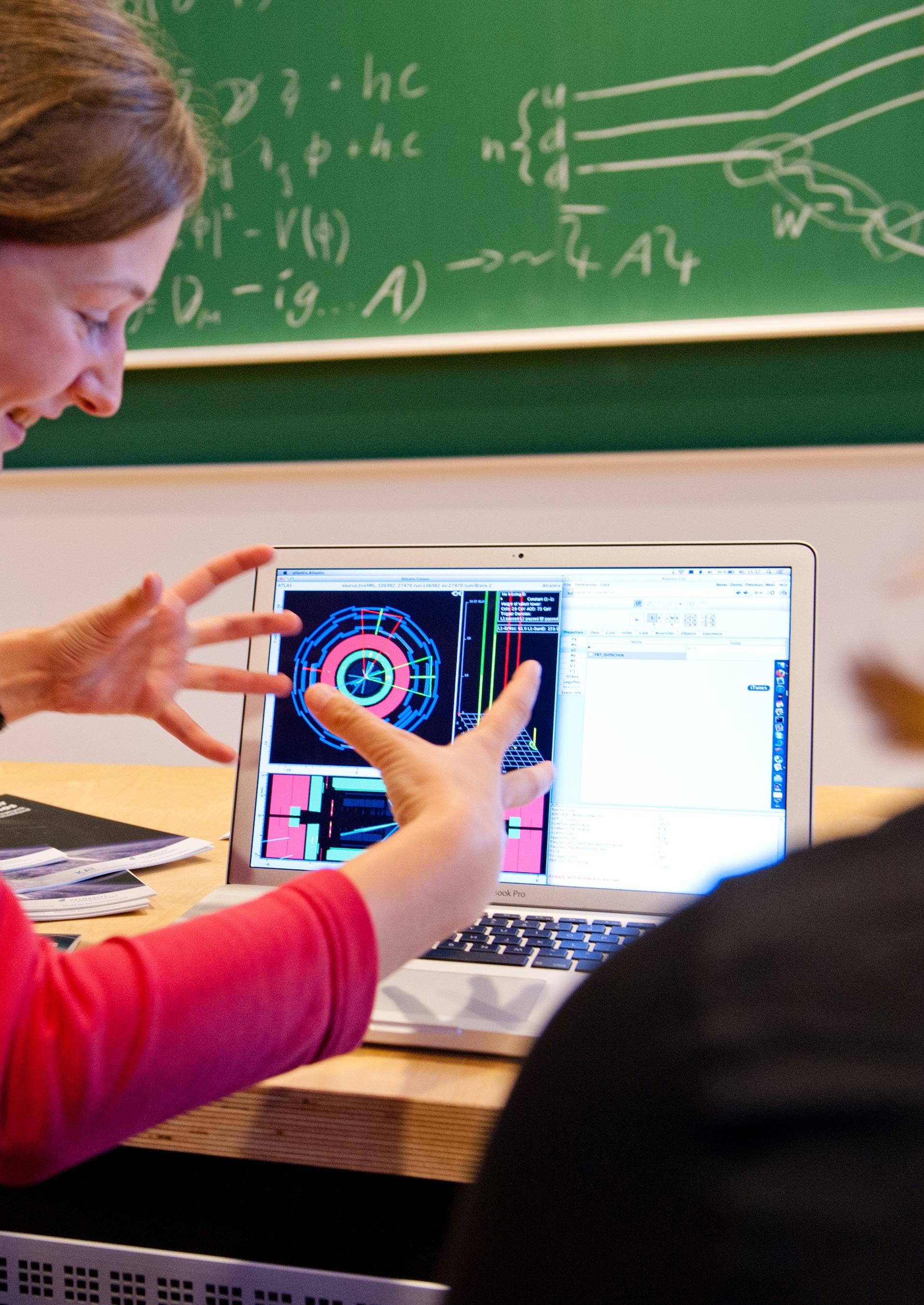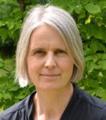
6 minute read
INTERNATIONAL MASTERCLASSES: JOIN THE GLOBAL PHYSICS COLLABORATION!

INTERNATIONAL MASTERCLASSES: JOIN THE GLOBAL PHYSICS COLLABORATION!
Advertisement
UTA BILOW* Technische Universität Dresden
KENNETH CECIRE* University of Notre Dame
*On behalf of the IPPOG Collaboration
GLOBAL STUDENT INVESTIGATIONS OF AUTHENTIC PARTICLE PHYSICS DATA
Have you considered International Masterclasses? Heard about them? Under any scenario, if you want to give your students a great physics experience in a truly international environment, International Masterclasses may be the opportunity for which you have been looking.
International Masterclasses take place each year around March with some 13,000 students worldwide participating at more than 225 institutions and most connecting by video conference with particle physicists at CERN in Europe or Fermilab in the United States. Students in international schools can participate by either joining up with a nearby university or research institute that is hosting a masterclass or by holding one right at the school. The latter approach takes a little more doing, but it has been done before (see our article International Masterclasses: Global Engagement in Particle Physics in the previous issue of Global Insights) and help is available. Let’s explore both avenues.
HANDS-ON ACTIVITIES AS THE SEASONS CHANGE
International Masterclasses (IMC) bring expertise from frontier scientific research to high school students. In a masterclass, particle physics is a hands-on activity. Students learn about methods, tools and open research questions in this field and are enabled to take part in the research process. Scientists introduce them to the world of the tiniest bits of matter and the accelerators and detectors used to study them. By analysing authentic data from the Large Hadron Collider (LHC) at CERN or a neutrino experiment at Fermilab, students get a taste of what cutting-edge physics is really like. At the end of their masterclass, students connect in a video conference with physicists at CERN or Fermilab and other student groups from different countries. They discuss their results, ask the scientists questions, and deepen their understanding of scientific research.
All resources for IMC are available on the web and free to use for educational purposes. In 2020, the program spans the period February 26–April 8. International Master classes are organised by IPPOG, the International Particle Physics Outreach Group, an international network of scientists, science educators and communication specialists with the goals of conveying particle physics to the general public and improving science education.
INTERNATIONAL SCHOOL, INTERNATIONAL MASTERCLASS: GREAT MATCH
International Masterclasses work at international schools because they share two major attributes. For IB schools, make it three.
The first attribute is, of course, an international outlook. Students participate in masterclasses worldwide because particle physics is worldwide. For example, the ATLAS experiment at CERN may be located just outside Geneva, but physicists participate from 183 institutions in 38 countries. Many visit CERN regularly, but most do the largest part of their ATLAS work at their home institutions. International Masterclasses mirror this worldwide collaboration: in 2019, 133 masterclass institutes in 33 countries participated in ATLAS masterclasses. On just one fairly typical day, 29 March 2019, there were four video conferences moderated by CERN and Fermilab for 13 groups of students from 10 countries, covering three particle physics experiments. Thus, international schools can help model international scientific collaboration to their students with masterclasses and make unique contributions due to their own global stance.
The second attribute is rigor. International schools promote high academic standards. Master classes are challenging and interesting: International school students can and do thrive. They also bring back a unique perspective on physics that is not found in the textbook or even, often, the science lab. Add to that an awareness of physics at the cutting-edge—the data used in masterclasses is from this decade—and students get a real boost in their physics education.
Finally, if a school is part of the International Baccalaureate program, the physics teacher will find particle physics right in the IB Physics curriculum. And we think the masterclasses provide “real physics research” insights that highlight that curriculum.
HELP IS ON THE WAY
If it works for you to bring your students to a university or laboratory, your first step may be to consult the International Masterclasses website to see if you can find a masterclass institution near your school. The site has profiles of the institutions, providing a contact in most cases. You can e-mail that contact directly to see if they are open to involvement by your school. (They may be looking for more students or may already be filled up; you have to
ask!) If that does not work, contact one or both of us; we will try to find you another institution.
If a nearby institution is not your best bet, you can run your own masterclass. It is more challenging and requires a somewhat bolder attitude. But we can help. First, you will need to register your school as a masterclass institution (see below). Then, let us know you are in and we will provide an extensive orientation via video conference to build your knowledge and confidence. We can also partner with you in finding a physicist to work with you and your students during the masterclass, either in person or online. Since you are doing this on your own, the only “hard” appointment will be the video conference, so you may be able to stretch your masterclass out over several days to give students bite-sized chunks of the masterclass, which some institutions have found to be an advantage. For example, several teachers at different schools who work with the University of Notre Dame often use this approach.
We want your masterclass to join the ranks of the many successful participants of International Masterclasses. Together, we can make it a great experience for you and your students.
SIGN UP NOW FOR YOUR CONNECTION TO CERN OR FERMILAB
Registration for IMC 2020 starts the end of October and runs until the beginning of January. Let us know when you are interested in joining this international endeavour. You pick your preferred date, and we provide valuable information in a weekly circular on how you can prepare for your event. Whether you plan an orientation with your students or you want to print certificates of participation, we keep a wealth of material and ideas that will help you to adapt the masterclass to your needs. To get on the mailing list for information, including registration, please fill out the online form at the link to the right or this QR code:

Bringing authentic physics research to the classroom and attracting students’ attention by offering activities that connect them to world-class labs has a great potential to spark their interest in science education. Teachers and students thus profit from taking part in IMC, be it at a nearby research lab or at their own high school.
ABOUT THE AUTHORS

Kenneth Cecire is a co-leader for QuarkNet, a U.S. program to bring particle physics to high schools, at the University of Notre Dame. He has an M.A. in Physics and long experience as a teacher and in national and international physics outreach and education.

Uta Bilow is a science communicator at TU Dresden, Institute of Nuclear and Particle Physics, where she is coleader of international and national outreach programs for particle physics. She holds a Ph.D. in Chemistry and has worked as a scientific writer for many years.
RELEVANT LINKS:
International Masterclasses: https://physicsmasterclasses.org
LHC Masterclass Library: http://tiny.cc/lmclib
E-mail list form: http://cern.ch/go/c7fK







